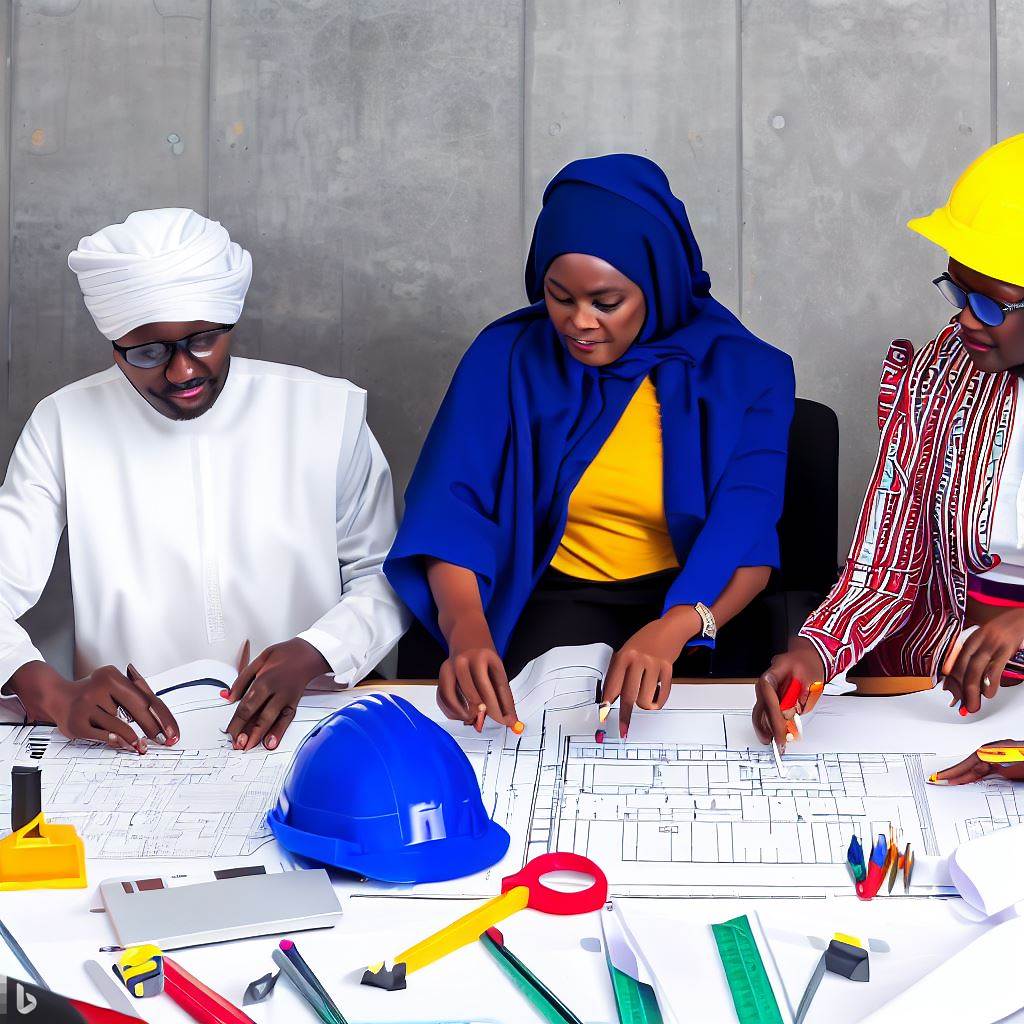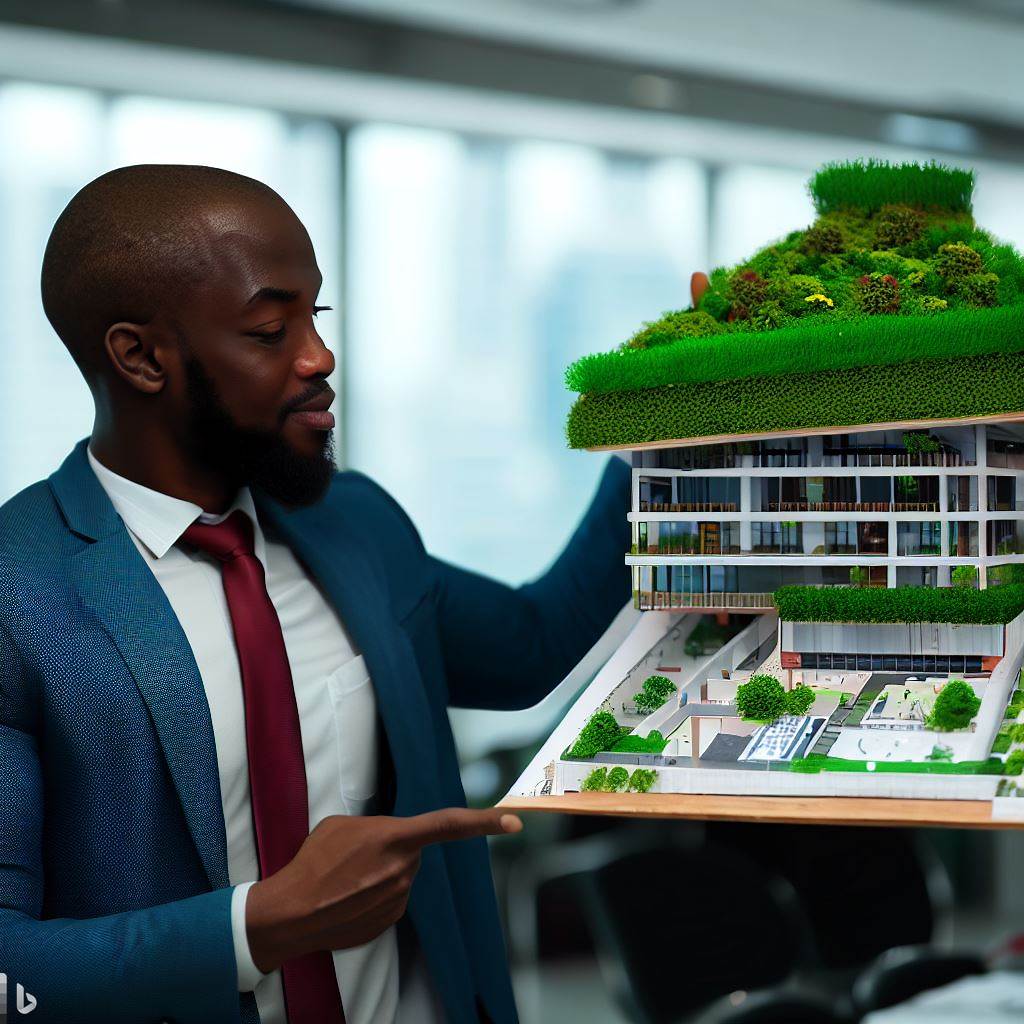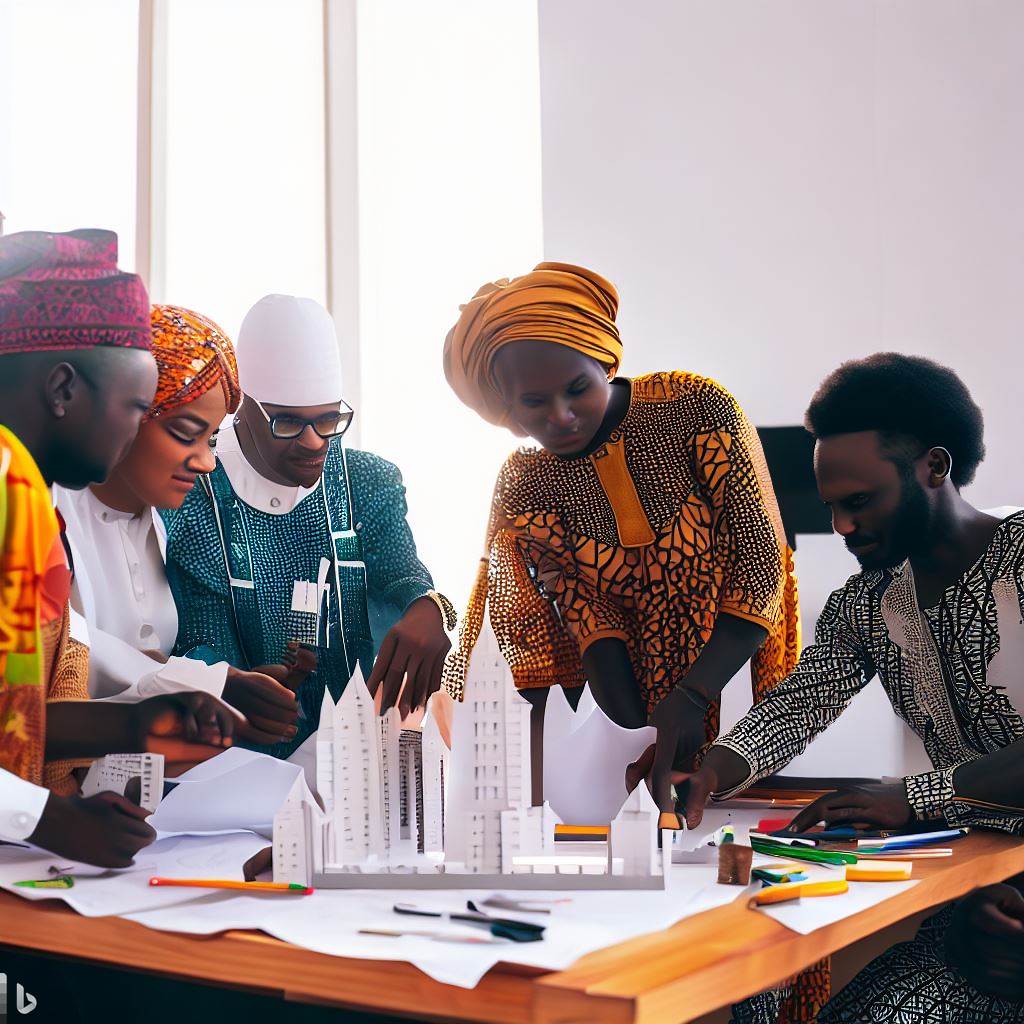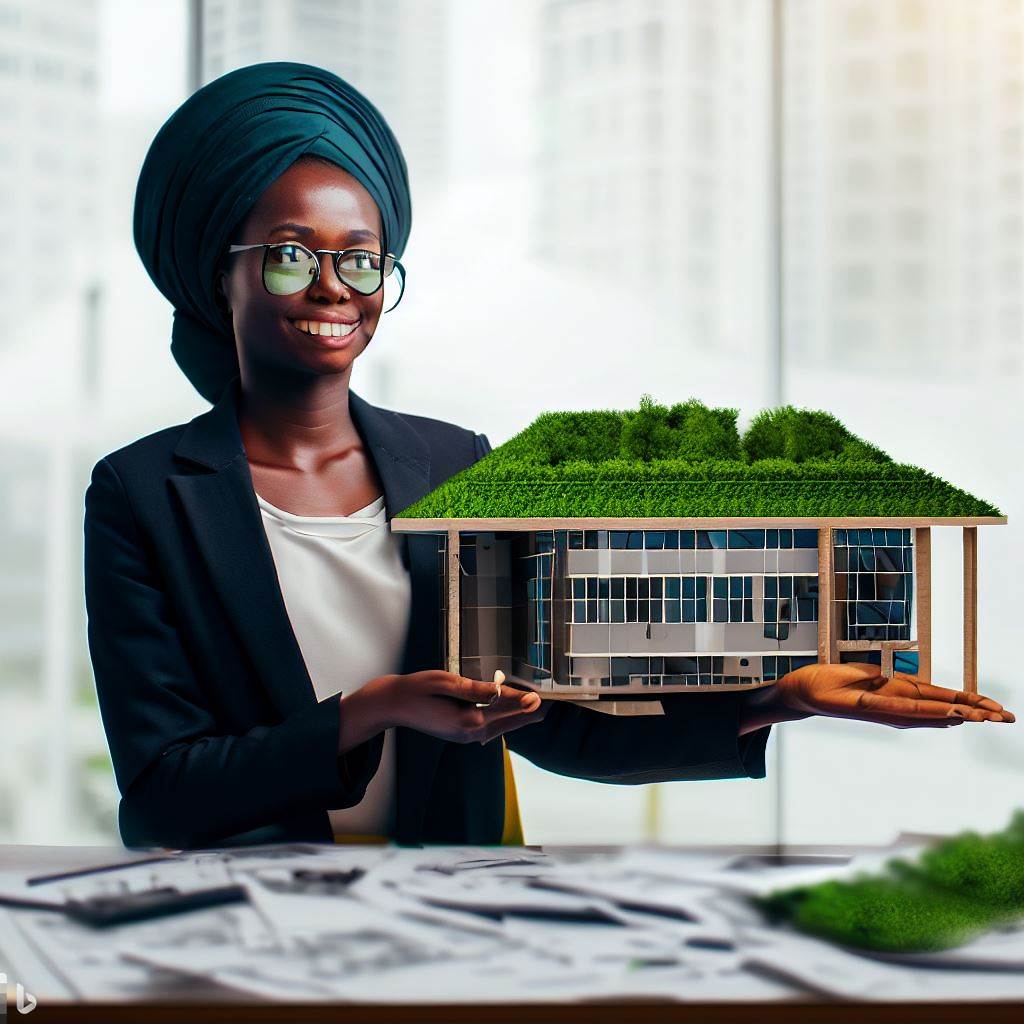Introduction
Good urban design is essential for modern cities to function effectively and sustainably. The layout of buildings, streets, and public spaces can have a profound impact on the quality of life and economic vitality of a city.
Nigerian architects are making significant contributions to reshaping urban landscapes and improving the built environment in their home country.
For decades, Nigerian architects have been at the forefront of designing buildings that reflect the cultural heritage and identity of Nigeria.
Today, they are increasingly focusing on urban planning and design, taking a holistic approach to creating livable, functional, and sustainable urban environments.
From Lagos to Abuja, Nigerian architects are designing innovative buildings and public spaces that promote community engagement, support economic development, and enhance the overall quality of life.
Their contributions to urban landscapes include designing smart cities, such as Eko Atlantic City, which is a strategically planned and built city that is designed for the future.
Nigerian architects are also involved in projects that promote environmental sustainability and urban regeneration, such as the Lagos Waterfront Regeneration, which seeks to revitalize Lagos’s waterfronts by creating green spaces, parks, and public beaches.
In essence, Nigerian architects are making an enormous impact on reshaping urban landscapes in Nigeria.
Their work reflects modern design trends, cultural heritage, and sustainability ideals, and their commitment to building better cities is driving changes that will transform Nigeria’s urban environments and the lives of its residents for years to come.
Read: Leveraging Tech in Nigeria’s Architecture Profession
Reshaping Urban Landscapes: The Role of Nigerian Architects in Urban Design
Brief History of Architecture in Nigeria
Architecture in Nigeria has been influenced by a variety of cultural and historical factors.
Traditional Nigerian architecture has focused on the use of locally sourced materials and building practices that reflect the needs and lifestyle of the surrounding communities.
This kind of architecture can be seen in the construction of traditional compounds, religious buildings, and village squares.
During the colonial era, Nigeria experienced an influx of Western-style architecture. The most notable examples of this are the government buildings constructed by British colonial authorities, which were designed to project a sense of authority and power.
After Nigeria gained independence, there was a surge in the construction of modern buildings, with many architects seeking to create buildings that reflected Nigeria’s unique cultural identity while also incorporating the latest international design trends.
The Role of Nigerian Architects in Modern Urban Design
Today, Nigerian architects are playing an increasingly important role in the development of modern urban design.
They are using their knowledge and expertise to help shape the physical landscapes of Nigeria’s growing cities, while also considering the social, economic, and environmental impacts of their work.
Nigerian architects are contributing to the development of sustainable and inclusive urban neighborhoods.
They are addressing the challenges posed by rapid urbanization, including issues related to housing affordability, infrastructure, transportation, and public space.
Examples of Nigerian Architects Leading Major Urban Projects
Many Nigerian architects are leading the way in major urban design projects in the country. Here are some examples:
- Olajumoke Adenowo – Adenowo is the founder of AD Consulting, an architecture and interior design firm. She has led several urban design projects, including the design of the Maryland Mall in Lagos.
- Tosin Oshinowo – Oshinowo is the founder of cmDesign Atelier, an architecture, interior, and product design firm. She has played a major role in the design of several residential and commercial properties in Lagos, including the Caxton Alile Housing Estate.
- Olamide Udoma-Ejorh – Udoma-Ejorh is a co-founder of the Nigerian-based architecture firm, STERLiNG. She has led several notable projects, including the design of the Nike Art Gallery in Lagos.
- Seun Oduwole – Oduwole is the founder of ArchitectureAR, an architecture and research firm. He has worked on several urban design initiatives in Nigeria, including the design of the Apapa Urban Regeneration Project in Lagos.
In summary, Nigerian architects are playing a crucial role in the reshaping of the country’s urban landscapes.
Through their innovative and thoughtful designs, they are helping to create sustainable, inclusive and livable urban spaces that reflect the needs and aspirations of Nigerians.
Read: Architectural Regulations and Policies in Nigeria Explored
Innovations in Urban Design by Nigerian Architects
The Use of Technology in Urban Design:
Nigerian architects are integrating technology in their urban design solutions to create smarter and more efficient cities.
Advanced software and digital tools help in the visualization and planning of projects, making it easier to create accurate 3D models and simulations.
This aids in the early detection of problems and helps in developing solutions in a more timely and cost-effective manner.
Sustainable and Eco-Friendly Urban Design Solutions:
Nigerian architects respond to environmental concerns by prioritizing sustainable design in projects.
They integrate building materials and construction methods that reduce the carbon footprint, along with green spaces and landscaped areas, into urban designs.
This minimizes the impact of construction on the environment and promotes eco-friendliness in urban environments.
Creative Approaches to Redesigning Public Spaces:
Nigerian architects are transforming public spaces into vibrant areas that foster social interaction and community engagement.
They are using innovative approaches such as converting disused areas into parks, gardens, and recreational spaces.
They are also creating outdoor art installations and installations that encourage public participation, promoting cultural exchange and community spirit.
These innovations in urban design are transforming the urban landscape in Nigeria, creating smarter, more sustainable, and more engaging cities.
Nigerian architects are proactively embracing the challenges of urbanization and developing solutions that balance the needs of the people, the environment, and technological advancements.
This has led to the creation of urban areas that are not just functional but also aesthetically pleasing and enjoyable.
Read: Dissecting The Architect Registration Council of Nigeria

Challenges Faced by Nigerian Architects in Urban Design
Urban design in Nigeria faces several challenges that affect architects and other stakeholders in the industry.
These challenges have a significant impact on the quality of design and the overall appearance of urban landscapes.
Here are some of the primary challenges that Nigerian architects face when designing urban landscapes:
Limited Resources
Nigeria is a developing country with limited resources. This challenge affects architects in their pursuit of high-quality buildings and designs.
Access to essential materials and technologies can be problematic, which makes it difficult for architects to create the structures they envision.
Additionally, limited funds from clients could limit the creativity and innovation of architects and lead to lower quality buildings.
Government Regulations and Bureaucracy
The Nigerian government has several regulations and policies concerning urban design.
However, these regulations are often restrictive and bureaucratic, making it difficult for architects to implement their designs.
The lengthy process of obtaining building permits, for example, often leads to delays and additional costs, which could affect the overall design and budget of the project.
As a result, architects might have to compromise on their original designs to comply with the government regulations.
Cultural and Societal Influences
Another challenge that Nigerian architects face in urban design is the influence of culture and society.
Nigeria is a culturally diverse country, and the culture of a particular region often affects the design of buildings in that area.
What’s more, societal norms and customs could influence the design of a building. For instance, the design of a building in Northern Nigeria might differ from that in Southern Nigeria.
Architects need to consider these cultural and societal influences when designing buildings, which could limit their creativity and flexibility.
The challenges that Nigerian architects face in urban design are significant and affect the quality of buildings and urban landscapes.
Limited resources, government regulations and bureaucracy, and cultural and societal influences all contribute to the difficulties architects face.
However, despite these challenges, Nigerian architects continue to play a crucial role in reshaping urban landscapes and driving change in the Nigerian construction industry.
Read: Post-Modernism and Its Influence on Nigerian Architecture
Impact of Nigerian architects on urban landscapes
Thanks to the creativity and expertise of Nigerian architects, the urban landscape of the country is changing for the better. Here are some case studies of successful urban design projects by Nigerian architects:
- The Green Building: Designed by Adeyemi Amosun, this environmentally-friendly building in Lagos is a model of sustainable architecture. It features solar panels, a rainwater harvesting system and a green roof, reducing its carbon footprint and energy consumption.
- Redevelopment of Onikan Stadium: Kunlé Adeyemi of NLÉ Architects was commissioned to transform Nigeria’s oldest sports ground into a world-class cultural centre. The new design features an amphitheatre, a museum, an art theatre and a gallery space.
- Ideato Secondary School: Chike Chukwuma of Studio Chike has designed an innovative school building in Ideato, Imo State. The structure is built using locally-sourced materials and features a solar-powered ventilation system that keeps the classrooms cool and comfortable.
Nigerian architects are not only improving the aesthetics of urban spaces but also making a positive impact on the community and economy.
By redesigning and repurposing existing structures, they are providing new opportunities for businesses and entrepreneurship.
For example:
- Ahmadu Bello Way in Lagos: Architects, urban planners, and designers propose a redesign of Lagos’s Ahmadu Bello Way. The plan includes wider sidewalks, green spaces, and a bike lane, enhancing pedestrian-friendliness and supporting local businesses.
- Ikeja City Mall: ACCL designed Ikeja City Mall, a modern shopping center attracting locals and tourists, offering a cinema, food court, supermarket, and various retail stores. The mall provides employment to hundreds.
- Lekki Free Trade Zone: Several architectural firms, including ACCL and Eko Development Company, designed Lekki Free Trade Zone, a massive industrial park in Lagos. It generates thousands of jobs and attracts major international investors, making Nigeria a global business destination.
The contributions of Nigerian architects have not gone unnoticed, with many receiving recognition and awards for their outstanding work.
Some notable examples include:
- David Adjaye: The Ghanaian-British architect was awarded the Design Miami/ Artist of the Year 2011 award for his innovative approach to contemporary architecture and his commitment to social and cultural issues.
- Kunlé Adeyemi: In 2011, he was named a TED fellow for his work on sustainable architecture and urban development.
- Chike Chukwuma: In 2018, he was named a finalist in the Rolex Awards for Enterprise for his innovative use of sustainable building materials and his advocacy for climate-resilient design.
These awards testify to Nigerian architects’ ingenuity and impact on the country and the world’s urban landscape.
Nigerian architects play a crucial role in reshaping the country’s urban landscape, developing innovative and sustainable structures, fostering opportunities for businesses and entrepreneurship.
Their growing reputation inspires young people nationwide to make a difference in the built environment.
Read: The Intersection of Nigerian Culture and Architecture
Conclusion
Summary of the Nigerian architects’ contributions to urban design
Nigerian architects are playing a crucial role in reshaping the urban landscapes of the country. With their innovative and creative designs, they are giving a new shape to the cities.
They have incorporated the traditional style of architecture along with modern designs to bring about a unique blend of tradition and modernity.
Through their designs, Nigerian architects have created functional and aesthetically pleasing spaces that enhance the urban environment.
They have added value to the cities by designing buildings that are eco-friendly and sustainable. Their designs have also reduced carbon footprint and are energy efficient.
Nigerian architects have designed buildings that are inclusive and accessible for the differently-abled. They have also incorporated social spaces, like public squares, into their designs.
Reflection on the potential future impact of Nigerian architects on urban landscapes
The future impact of Nigerian architects on urban landscapes is promising. As Nigeria continues to grow and develop, so will the need for innovative and creative designs.
Nigerian architects have proven their ability to create world-class designs that are functional and sustainable.
The demand for sustainable buildings and eco-friendly designs will grow, with Nigerian architects leading the way. They reduce environmental impact, creating healthier urban environments.
Nigerian architects significantly contribute to urban design, with their impact lasting for years.
Their innovative and creative designs provide functional and aesthetically pleasing spaces, enhancing the urban environment sustainably.
The future impact of Nigerian architects on urban landscapes is promising as they continue to prioritize sustainable designs.




